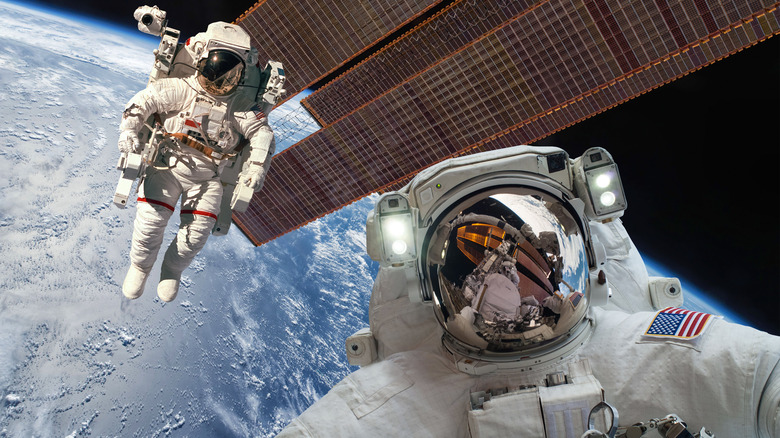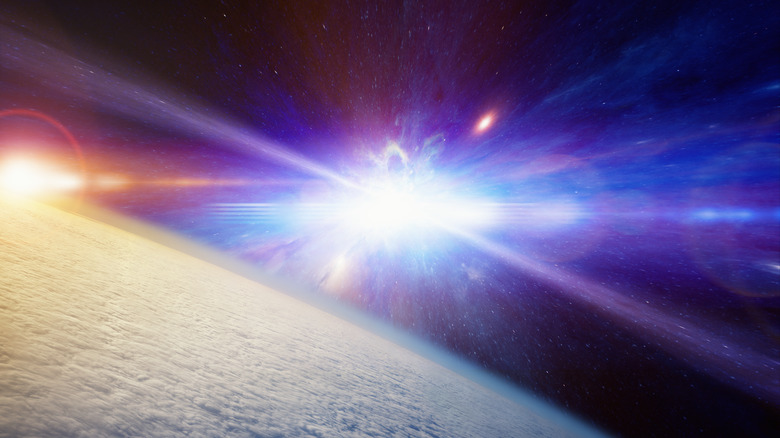What Space Smells Like According To Astronauts
No one can hear you scream in space, but apparently, you can smell. Well, you could smell if you could take off your helmet while floating around in space. But you can't because everyone from movie buffs to hardcore science geeks knows that space is a vacuum with no air. The absence of air is why sound can't travel through space. Essentially, sound waves are just vibrating air molecules banging off each other, so there can be no sound without air. Sorry, Sigourney.
Despite their inability to remove their helmets while on a walkabout, astronauts still say space stinks. So how's that even possible? Spacesuits are designed to protect astronauts from extreme temperatures and radiation while providing a constant supply of oxygen and keeping the suit pressurized. It also filters out any possible "smell" there might be in space.
When the spacewalkers return to their craft, remove their helmets and go through the airlock, they describe smelling a myriad of things from a Nascar race to barbeque, burning metal, brake pads, gunpowder, and even burnt almond cookies.
In an interview with Space in 2009, NASA astronaut Kevin Ford said, "It's like something I haven't ever smelled before, but I'll never forget it." NASA astronaut Don Pettit said it was hard to describe the smell exactly but likened it to "pleasant sweet smelling welding fumes." Shuttle pilot Dominic Antonelli confirmed it was hard to pinpoint but said it was definitely a different smell than anything else. Japanese astronaut Koichi Wakata said he smelled the odor too. While it's still not known for sure where the scent is coming from, there are a few theories that might help explain the source.
What's that smell?
One idea blames it on dying stars. When a star dies, it releases a host of malodorous compounds called polycyclic aromatic hydrocarbons (PAH). Louis Allamandola, founder and director of the Astrophysics and Astrochemistry Lab at NASA Ames Research Center, says these PAHs float around forever and are found throughout the universe, including in the food right here on Earth.
A far simpler — albeit less cool — explanation is a chemical reaction called oxidization. Many of these smelly accounts occur immediately after an astronaut returns from their space jaunt, closes the outer hatch, re-pressurizes the airlock, and opens the inner hatch. The Australian Academy of Science says during an astronaut's time in space, single atoms of atomic oxygen accumulate on everything from the actual fabric of the suit to the tools and equipment the astronauts had with them at the time. It might just be that while pressurizing the airlock, those single atoms of atomic oxygen combine with O₂ to make ozone, and that's what astronauts are getting a whiff of.
NASA takes this whole smelly situation so seriously they hired chemist Steven Pearce to recreate the odor so astronauts training for future space missions won't be startled by the olfactory surprise. He said that metallic scent may actually be coming from the ions as they vibrate.

